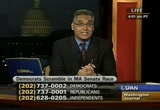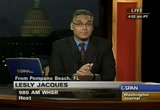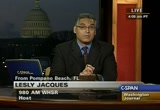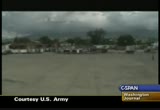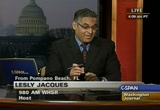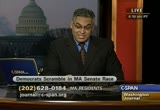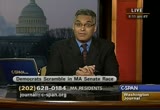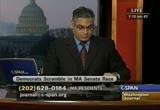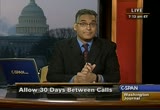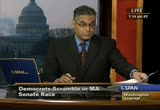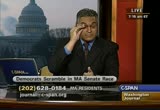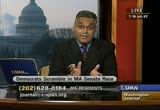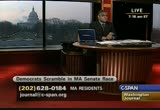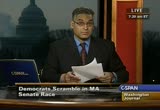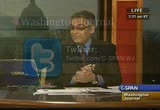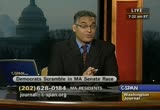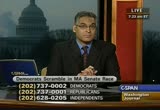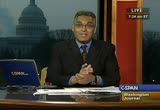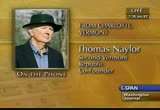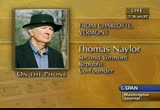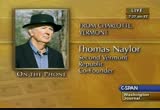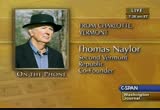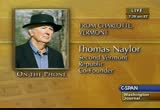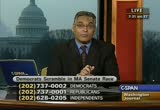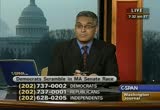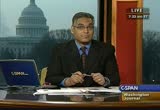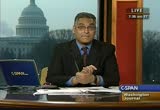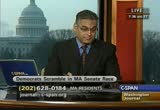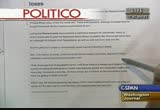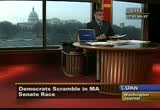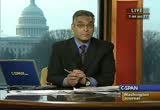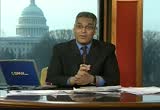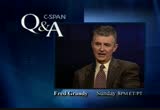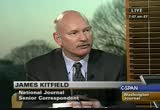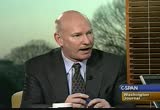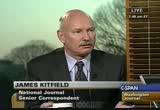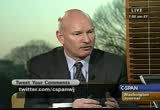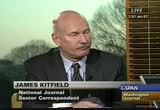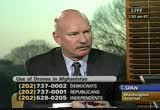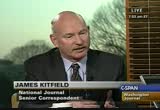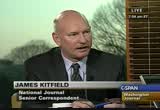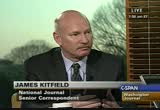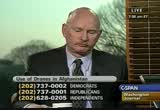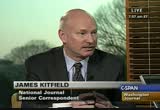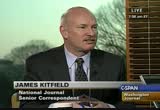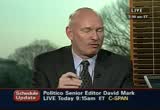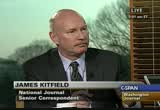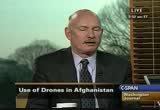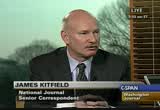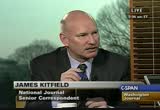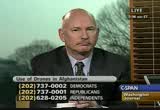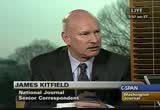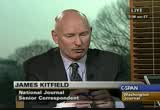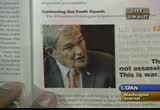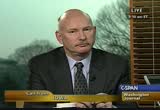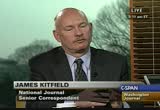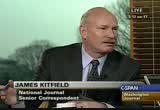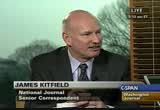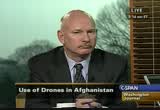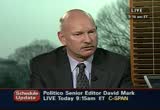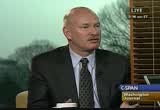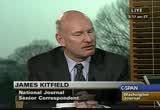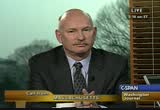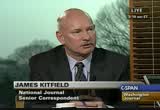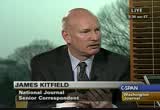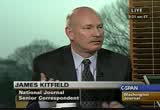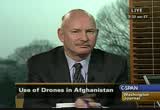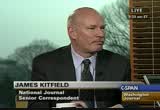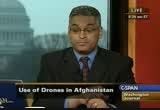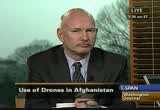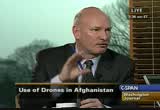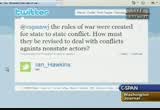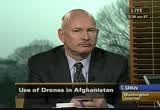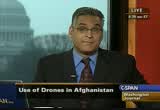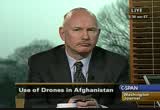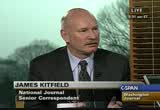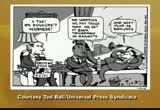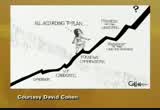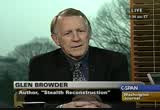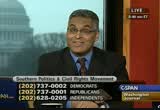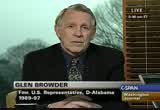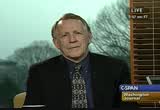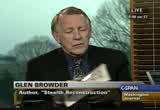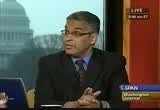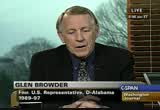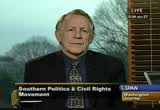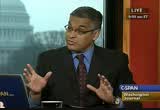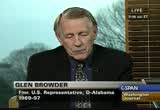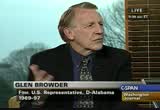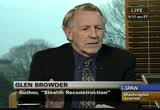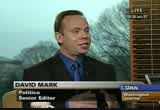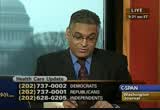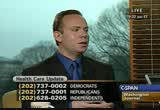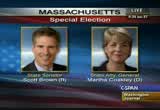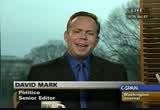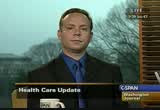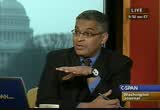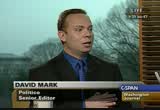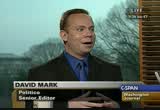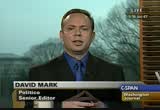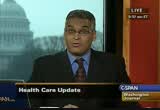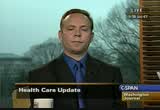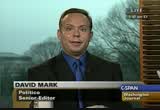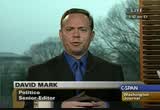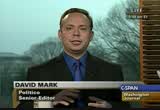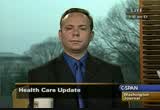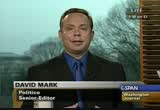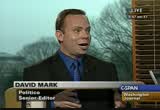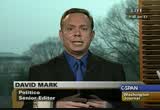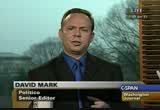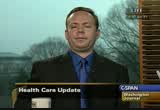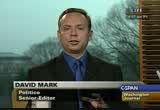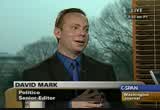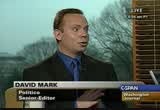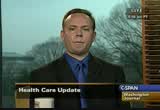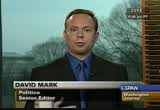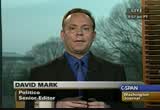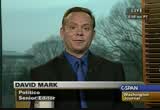tv Washington Journal CSPAN January 16, 2010 7:00am-10:00am EST
7:00 am
host: in economic news this ijuw drop by nearly 2% last year. that was the biggest drop since 1990. there are reports about the 850,000 people who have enrolled in the obama administration's program to prevent foreclosures. only about 7% of them have actually received loan modifications. the president heads to mass. sunday to campaign for the governor of that state. that will be our discussion for
7:01 am
the next 45 minutes. the numbers are on your screen. several newspapers are saying that democrats are scrambling in that state. you can phone in and share your thoughts. you can send us something on twitter. cpanfmawj@twitter.com. we want to talk about this race in massachusetts and your thoughts and what it means in this state and overall for health care. we will take those calls in just a moment. in an effort to let you do what is going on in haiti, we are going on the phone now.
7:02 am
we will talk to the host of a radio station in paul devoe beach, florida. -- pomp and no beach, florida. caller: good morning. it is a pleasure to join you. i can tell you it has never been a crazy. we have been here for 13 years, took to four hours a day, and we have never had an earthquake like this one. people are calling into the radio station 24 hours3 . we have dedicated all these programs so people are calling 24 hours. it is incredible. all of our lives are busy 24 hours a day people are still looking for their loved ones.
7:03 am
i just heard a guy coming to the station this morning and he could not stop crying because this guy lost eight members of his family. he is one person. people are calling in. people are asking if we know about certain areas. communication has not been completely established. because of that, it has created problems. the radio station is the only connection where they can call in and try to have hope. we feel powerless as a journalist. we don't know what to tell them. they ask us about certain parts of port-au-prince. we tell them if you do that here
7:04 am
anything, it doesn't necessarily mean that the person you are looking for is dead. this is the message of hope that we are trying to share with our community. this community is completely destroyed. people are down ver. we wanted to take the opportunity to talk to you to think the administration for pbs. we have been fighting for that for a long time. dbthe administration has done e right thing. obama has done the right thing. and i want to thank him for that. yesterday, i said that my heart was divided between this side this -- the sadness and the suffering of the people and the news that brings joy to more than 30,000 haitians who are
7:05 am
here illegally. they have been arrested by the authorities. god has a plan. this is a message of hope that we are sharing with our community at this time. host: what does it do for people sending money back home to haiti. guest:lw they will have peace of mind. they will not look; over their shoulder. núthere are many haitians in soh florida. the second thing is they will have access to a work permit. we have unemployment very high but haitian people are very hard workers and will find something to do. many people in our community,
7:06 am
many of them lost their families. this is one of the best things that could happen at this moment. these people will love access. to access they will have a driver's license. this is something that will bring a good spirit to the people here so they can help the people in haiti this is the logic we have been trying for years. i have personally been in washington demonstrating as a journalist. when things get bad, you have to go on the street with the people. i was there twice. it is kind of a victory. i think the administration has done the right they and i hope mr. obama will do the right thing. i am so pleased with what the american government has done so far.
7:07 am
i have friends of mine because of the prisons of the united states, some of them have been saved. we're grateful for that. we're grateful for everything the u.s. is doing at this point. host: as far as giving out information to florida. how'd you get information? caller: we have created our own system. first, we have a government corresponded in haiti. i spoke with him today for two minutes and the phone cut off. since then, have not been able to reach him. everyone was looking to find a family in different areas. we asked them to call in. they call in and tell us certain
7:08 am
areas are ok. for people in those areas, but are not 100% to ensure but that gives them hope. there was a station in haiti that was able to broadcast on the internet, 80.com. -- haiti.com if you're looking for someone, we have found people on the ground who exactly will tell us what the situation is. cnn did a great job. we are grateful for all that is happening. how long will it take to really
7:09 am
make z:y of what is happened. we're trying to make sense of what has happened. and about 5 minutes, i will talk to people. my heart is so sad because of what happened but at the same time, i am very happy for the people. since yesterday, they have been calling in because they tell us something. host: we understand you have to get back on the air but we thank you for spending time with the spread980 am peggy very much for being with us. we want to turn our attention to the senate race in massachusetts. this is about the president's trip that will take place to campaign. illogic of it obama's visit is
7:10 am
mathematical -- the logic of president obama's visit is a mathematical. a huge block of voters who have a favorable opinion of obama are not with the democratic candidate. he has to get them for her or she loses. "the financial times"looks at the polling. ms.coakley has 53% of the boat. mr. brown is ahead by 4%. i expect coakley to win but mr. brown has created a lot of excitement. democrats are clearly nervous. the national democratic committees have added at least
7:11 am
$1 million to atcoakley's campaign coffers. we'll talk about this for the next 45 minutes or so. our twitter address it is twitter.com/cspan first up is new york on our democrats line. caller: thank you for cspan and my heart goes out to the tragic situation in haiti. this is no time for partisan politics for republicans looking to pounce on the president.
7:12 am
my expectation is that they will continue to do so. democrats really need to take a lesson from the campaign of ross perot and the way he used to come out and talked the talk and explain in simple terms, graphics. he reach people. he talked to people. the democrats are not getting to the american public. they should be talking about banking regulations in simple forms but strong forms. they should talk about getting health care light. i don't understand why health care can be revisited after the health care-like bill goes through. we could vote for better health
7:13 am
care reform in the near future. i don't know why that cannot be done. democrats need to take a lesson from ross perot and talk in simple terms, talk straight, strong terms that the american people can relate to and act on what they say, not just talk the they need to walk the walk in the upcoming elections. caller: my heart goes out to the people in haiti and what happened i hoped. good lord helps them. i am a republican but i do not like the way the republicans are behaving. they say no to all issues. when clinton ran against bush,
7:14 am
the money was good and everything was fine. the public had not given any assistance to obama to get his agenda done. he wants to put america back to work. i hope the democrats [unintelligible] can work as a team. the republican party is a party of no. they have to stop blocking the issues. host: by working kitchens, bars, and sidewalks, what has positioned the rising tide over
7:15 am
taxes, unemployment, and washington. the frustration is evident among independents who account for fully half of massachusetts voters by registration. our next call is from boston, mass., an independent, go ahead. caller: i will be voted for joseph kennedy in the third party libertarian ticket. he has been getting not much attention but has done well in debates and is getting more publicity. i can see the excitement with brown. there is a lot of discontent in massachusetts when it comes to the romney-care, which is what it's called. he wants to mandate all massachusetts residents to have health insurance and financial penalties that along with that. there is a massive debt that
7:16 am
massachusetts is in as a result of that. that is the same model that has to be rolled out to the rest of the country. on top of the penalties, there's a possibility of jail time. i can see why people martha coakley will lose because of the health-care mandates in massachusetts. host: do you think joseph kennedy will take away votes that may go to ms. coal;ey? caller: i don't think he will factor into much. he draws a bit more from the brown camp. it is hard to say. i don't think he is registering too high in the polls. out of the two, he is really the most honest out of the three as far as talking about taxes and
7:17 am
spending. he holds an honest opinion and is not the old and to any groups. host: sumter, south carolina, democrats line, good morning. caller: i find it mega-byronic ted kennedy plus seat could be the one vote that shuts down the pride and joy which was health care. i think it goes to show something much more bigger which is -- look at nelson and the lieberman and why did byron dorgan walk away from the senate, or is about to. maybe it is because the u.s. senate has become kind of
7:18 am
dysfunctional. with the 60 rule for passage, maybe they should revisit this. it seems like u.s. senators do not engage any more. they are more isolated with big step. they don't go to the dining facility. how many deals were cut in the old days at cocktail parties or at lunch or something? that is not happening anymore. we need to maybe revisit the rules of the senate because we will get nothing done. i pray that clinton and obama and all those guys can say that senate seat. host: to give you a sense of the ads that have been taking place. >> i am martha coakely and i approve this message. he will block tougher oversight of wall street, give more tax
7:19 am
breaks to the wealthiest, oppose new prescription coverage for millions of seniors,. brown even opposes contraception. he lacks understanding and seriousness. in times like these, we cannot afford a republican like scott brown. >> i am scott brown running for u.s. senate. by now you have seen that negative ads against maitre they decided the best way to stop the is to tear me down. the old way of doing things will not work anymore. the attack as are wrong and go to barbara i am scott brown and i approve this buses because i am running in the name of the independent-thinking boater to take a political machine. with your help, i intend to host: let's hear from another independent in boston. aller: good morning and thank you cspan for the beautiful program that they do all the
7:20 am
7:21 am
thank y. host: before you go, who for those who do not know italian what did you say? caller: i said that people have a lot of debt. host: thank you for your call. off of twitter -- i don't care if it is teddy's seat, this woman took the election for granted. the democrats lose, it is their own fault and she is a bad check. you can share those thoughts at twitter. pemberton, new jersey is up next on our republican line. caller: i was a democrat and i switched to republican because things were so bad. i work for the state and right now we have 10 furlough days per year that we have to take. it is mandatory.
7:22 am
we lost a holiday. we did not get our pay increase. we are not looking to get anything extra. we're looking for more layoffs which is really bad. i bought a house in 2003 in pemberton and i took one year to find one. now i could buy 15 houses on this road. . host: how does that factor into the race in massachusetts? caller: because we are sick of the waste of money that obama and the democrats are doing. they are not letting us know what they are doing. they pass things at 4:00 in the morning. we wake up january 1 aor to and i don't know how many states. the senate change blahs there. no smoking in north carolina and the restaurants. i am nervous.
7:23 am
and in the bars. that is not their right to do that. that is up to the states to put those actions in, not washington. host: when does your governor takes office? caller: any day now, january- something. i forgot. host: what are your hopes for mr. christie. caller: i hope the stops the debt. they are going in with a $300 million budget deficit. i hear these billions of dollars that obama gives everybody else . we have people who are having their heat shut off. it used to be illegal. people here have oil like those in their tank of their putting kerosene in because they cannot afford to fill up. host: we will continue on with
7:24 am
calls and thoughts on the senate race in massachusetts. we want to give your attention to what is going on in vermont. in the upcoming elections there statewide, there are nine candidates who are running on a platform that would support vermont seceding from the union. these folks have labeled themselves with more of an independent streak and we have thomas naylor who is the founder of the second republic of vermont. can you tell us about your organization? guest: the organization is a think tank and a network of like-minded citizens committed to the objective of the return
7:25 am
of vermont to its status as an independent republic as it was between 1777 and 1791. and the peaceful dissolution of the american empire. those are our objectives. host: you have nine candidates running on this philosophy? guest: we had an official announcement in the capitol yesterday in months earlier. -- montpelier. we hope eventually to have candidates for most of the senate seats. host: what do you make of the fact that these folks have allied yourself with your philosophy? guest: it is primarily the condition our country is in. our view of the united states, the government, is that it has lost its moral authority it is
7:26 am
owned, operated, and controlled by wall street and corporate america. it is unsustainable, ungovernable, and on fixable. we find ourselves in the position of the american empire, which we refer to as the u.s.a., as probably the largest and wealthiest and most powerful and most materialistic, most races, violent of empire of all times. people are fed up and they are saying enough is enough. that is what it is all about. we have been in business seven years suddenly, in the last three months, these candidates stepped forward. we were willing to go for it. some of the candidates are quite serious. host: as far as vermont is concerned, what would be the benefit of the state or seceding from the union?
7:27 am
guest: the benefit would be enough to have your tax dollars from vermont be over $1 billion per year go to support these illegal wars that we support in iraq and afghanistan, palestine through the state of israel. dollar we pay to the feds, we only get back 75 cents. most importantly, control of our own destiny and not being in bed with morley -- with a morally corrupt empire. host: can you sustain yourself if you break away from the united states? guest: slowly, we only have 625,000 people and how could we survive. many failed to realize that of the 200 in the been the countries of the world, 50 of them are smaller than vermont and of the 10 richest countries
7:28 am
in the world, about five of those are smaller than vermont, including luxembourg, liechtenstein, iceland, bermuda, channel islands, etc. those are small countries that do very well. many people confuse secession with economic isolationism. we are not talking that. we would continue to participate in the global economy. host: as far as the nine candidates, what kind of support are they getting and who has the best chances of winning? the gate. one of the strongest candidate is running for the seat in montpelier held by an 85-year- old liberal republican who is retiring.
7:29 am
he has a very promising young business type, articulate,. the competition is not nearly as tough for lieutenant governor. they're about people running for governor, five democrats, including the former lieutenant governor -- two former lieutenant governors. the governor's race is a tougher race. we have a very strong candidate. the lieutenant governor race, the competition is not as formidable. host: as your organization formally endorsed any of these candidates? guest: the vermont independence movement is a collection of different groups. ? interneto station, radio free vermont. it is kind of a collective effort, not so much the
7:30 am
endorsement of the second vermont republic. it is not a political party. host: if people want to find out more about your party, where can they go on the web? guest: they can go to vermont republic,org or governor steele.com those of the most relevant reps -- website ^ host: we have talked about the senate race in boston any thoughts about that race? guest: i have -- i have not been following it all that closely. my comments wouldwt/]ñ not be l that helpful. host: mr. naylor, sbthank you fr your time. springfield, mass., next
7:31 am
american the and the blind, go ahead. caller: the reason the mark of coakley is having a difficult time is because she is so negative. ,ceher advertisements are so ba. host: who are you voting for? caller: i will probably a vote for mr. brown. host: what convinces you that mr. brown is the candidate for you? caller: i think martha coakley will be a rubber-stamp for the democrats and i do not like the health-care bill that is being forced down our throats i watched the last debate and i think joseph kennedy came across extremely well. i don't think he has a realistic chance of winning. host: buffalo, new york, good morning, on our democrats line.
7:32 am
caller: i wanted to mention how they say they do not like health care. nobody said anything about that prescription plan that we all pay for. they have a double. and in that hall you get nothing for it. you get $5,000 where you have to pay your premiums up front. its $60 per month. you get nothing for it. you have to pay for your own drugs and the cost of being in the program until you use $5,000 pe. i am a senior addai pay the prescription even though i don't need $5,000 worth. host: you major point.
7:33 am
what about the massachusetts senate race? caller: i think people have short memories. they say they hate the insurance and they did not like romney. scott brown is a broad miquelon. -- is eight romney clone. host: our democrats line, go ahead caller: i have been listening to your program and is about the special election. wait i can't hear you. host: you are hearing yourself. caller: what's happening is the republicans are afraid of the democrats. they are afraid of the democrats and a lot of older
7:34 am
white people, i hate to sound racist, but may looking at you and see an end and msnbc, it is like the older white people are in a panic. they are scared. it is because obama is president. what will happen in that state is that they are gathering together to try to get the republican in but what have they done? what have they done in the past curses now. ? -- a versus now. the guy in vermont was talking about seceding from the union. does nothing but white people. you guys need to stop it. host: new hampshire, republican line. caller: first of all, i am not
7:35 am
an old white men. i am not afraid or scared of the democrats. we are not racists. they need to eternal life in washington and end this cockroach democracy. when they turned the lights, they scurry in the middle of the night with a back room deals. that has to stop. let's go, massachusetts. let's go, america. thank you very much host: go- ahead. caller: i was hoping that scott brown wins the election tuesday because i have two young children in their 20's and they need -- they will be forced to buy health care by this new mandate. not only that, they will have to pay excise tax on the health care they are forced to buy. i don't think it is right and i
7:36 am
think we should have people get up here in massachusetts and make a statement for the whole country. host: as part -- as far as fellow independence, and to the will vote for next tuesday? caller: i am not connected with the parties but i have been watching this closely i think massachusetts people are as stunned as the rest of the country. they realize that we might be able to stop testing that is going on in washington. i think that is why we caught the attention of the country. host: hollywood, fla., on our democrats line. caller: thank you for taking my call. this is the first time i have called. one of the most important things is that obama will be an asset to the democratic ticket
7:37 am
and they should consider that ted kennedy has done a great job in massachusetts. one of the more important things that people seem toñi forget is that we have democrats come back from [unintelligible] from the last administration's stripping the country of all the assets that have been made. the previous years that democrats have been in power. i want people to understand that it is very important to understand that the obama administration has taken on a very heavy burden and they expect everything today. for the past eight years, the country has been raped of all its assets. people are suffering now as a
7:38 am
result of the past administration. host:"the new york times"this morning -- the food and drugs administration is expressing concern about health risks for bpa, a widely used component of plastic bottles and packaging that was declared safe in 1988. the agency says they are concerned about the effects on the brain of fetuses, infants, and children and would join other agencies to study the chemical in animals and humans. cleveland, ohio, go ahead caller: good morning. the first caller kept talk about more simple terms that they have to keep talking in. that is the problem.
7:39 am
there goes another liberal, along with the rest of the democrats, thinks they have to convince simple americans and the democrats have to keep providing everyone how the obama government and his goons and czars know what is best for a spread -- knows what is best for us. the democrats are worried about not only massachusetts tuesday but they are worried about this coming november, too, because democrats realize that americans are waking up and figure it out. they are bankrupting our country and their time is limited i appreciate the time he gave me, thank you. host: findlay, ohio, on our independent line. caller: just because this gentleman may win massachusetts does not necessarily mean that health care is dead.
7:40 am
the reasonhoáqv say it may be dead as because they are trying to get massachusetts voters to the polls. most likely, they will probably turn to someone like olympia snowe. they have done too much work on the bill. in both houses. there has been a lot of work done on this bill. this bill has been vetted and went through the insurance indu0 pharmaceutical factors. they will not let that bill died. they will probably have to take less. this massachusetts race -- was mind-boggling to many people is in a year-and-a-half, the same individuals, the same party that ran the economy over the cliff -- if you think about this -- they are talking midterm elections and giving it back to the republicans which people
7:41 am
just don't understand. this gentleman says he is fully formed -- fully informed by voting for the health care bill. massachusetts -- he doesn't even want to penalize the banks for what they have done. that should tell you what kind of gentleman or the american people are talking about voting back in office. fool me once, shame on may, the only twice, shame on may. we must stand together because something has to be done to fix this health care industry. host:"the politico" quoted
7:42 am
barney frank -- he said of the vote in scott brown, it would kill the health care bill. many democrats want to pass the legislation before scott brown is seated but democrats could face criticism from republicans and the party is not united on what would happen after a defeat. the chairman of the senate health committee disputed barney frank's declaration. i think there is a wellspring of support in this country for doing something about health care because people are losing health care every day. walpole, mass., on our independent line. caller: thank you for taking my call. cspan is a great media outlet for people to really find out what is going on across the
7:43 am
nation. i have an independent from massachusetts and i will be voted for scott brown. the reason is, the obama health care bill, among other things, the corrupt way it has been done. coming from washington. martha of coakley is not in touch with the people. she is an elite liberal. ovpshe is the strongest candidae that scott brown will the fate. that is the way i feel about it. thank you for taking my call. host: one more call from knoxville, tenn., and our independent line. caller: this is not about massachusetts. this is a%ñ call against obama. everything that he has tried to do, they are scary people so bad
7:44 am
against health care, they are afraid to step up and take the bullet and save it will work. if it doesn't work, republicans can reformat. nobody has stood -- no republican has to up and said they want to work and try to find a better solution. they keep hollering and harping on being against everything. democrats and republicans -- republicans are sleeping in the bed with the insurance companies. they don't care. if theyá overthrow this, nothing will change. they will go in the back with the insurance companies, smoke a a a big cigar, and laugh about what they have done to the american people.
7:45 am
host: thank you for all participated during this time. in our next segment, we will be joined by the senior correspondent and we will look at the united states government assassination program and how it uses drugs to accomplish that. we will learn more right after this. zñ-- how it uses drones to accomplish that. >> this weekend, a tufts university professor, 1965 the voting rights act. and the role it played in black radical politics and how paved the way for future african
7:46 am
american leadership. he will discuss his book. that is part of this weekend's booktv on c-span 2. next week, you will have your chance to talk to the oft offers of "being change." -- dana change. -- "game change." >> fred grandy represented i was in congress for four terms. since 2003, he has been heard every morning on wmal talk radio in washington, d.c. he is our guest sunday night on q&a. >> washington journal continues. host: our guest is james ki thetfioeld a national
7:47 am
correspondent. -- majes kitfield. james kitfield. what prompted you to write this piece? >> guest: we have seen this program for a while. in the last year-and-a-half, there has been a dramatic increase in the number of broken strikes. there's a controversy last summer when the cia director told congress there is a secret program establishing hit squads to fight and kill terrorists around the world. that caused a big furor. we should probably shun some more light on a secret program to target assassinations. we know very little about this. we don't know what the evidenciary bar is to get people
7:48 am
a list. we don't know who was involved but that is becoming clearer after my re- 40. -- reporting. jarratt things they think they could do to take lives. host: what did people do to put that on this list for consideration? guest: after 9/11, president bush had an executive order that had word in their to target people in the war on terror. it was never really defined which terrorist groups makes the cut. the government still will not tell you who gets on it all but one knowledgeable source told me that if you have anything to do with al qaeda, that is the clearest way to get a list brit they have expended that list. it has grown to the taliban as
7:49 am
well in afghanistan and pakistan. it has grown to drug dealers in afghanistan who are seen as helping the insurgency there. the list is expanding which happens in the secret programs. if there is no accountability on these programs, they tend to draft. we saw that with the cia its quad program. you also have special forces shooting guys on site in somalia. you have the establishment of these hit squads. these programs tend to export them because there are no natural breaks for them. host: is there not one central person who knows what is going on with these programs? guest: there are a number of lists of these prioritized target lists that are run by various different military commands. the commander in pat -- in afghanistan will have one.
7:50 am
the commander in iraq will have one for the cia by every debra berlyn but they get fed into the national security council. there is a single choke point. the president has to sign off at the end of every one of them. host: the topic of drogues comes up. what makes drone's one of the best weapons in this situation? guest: pakistan is a gray area that has led to the dramatic expansion of this program because it is a sovereign country. publicly, they rail against these incursions against their country we have run special forces it wanted to pakistan and caused a huge were a couple of times. they pulled back putting gude on the grid of pakistan and decided to lean heavily on drugs which are useful because they could loiter for many hours, follow terrorists, identified
7:51 am
them with state-of-the-art video and fire at them. host: they are controlled remotely? guest: to two different organizations controlled upper the military controls them in established war zones but the ones that are pakistan, because of the secrecy required, that is run by the cia. host: to the countries have to sign off on the strikes by the united states? guest: they don't have to sign off. this is part of the secrecy. the pakistani government has clearly taken part. publicly, the they know these things are unpopular and lead to the deaths of edison's who surround these terrorist targets. kzxthe government does a week aa nod. they participate and they know it goes on.
7:52 am
some of them are launched from inside pakistan agree we have contractors and cia analysts helping us identify targets and from that program. this is very hush hush because it is unpopular with the pakistani people. host: it started under president bush and expanded under president obama. what led to the expansion? guest: he campaigned on goií$(l+ hard after al qaeda. he said we took their eye off the ball in iraq. he had a willingness to go after al qaeda if and when senior leaders could be found. that is one reason, i think pretty telegraphed that. we have gotten better at this parade in the last 50 months, the cia has killed -- in the last 15 months, the cia has killed 15 of the top 20 al qaeda targets.
7:53 am
they have killed a lot of top guys. they killed the number 3 in al qaeda. they have an impressive record so they are getting better at desperatthis. we saw the seven cia chief since killed and they were doing this intelligence gathering which was fed into the drone program are and they are getting better at it and is the only weapon they have. they don't have any other tools to go into these un covered spaces. ti u$e strategyg
7:54 am
of the bench. if you take out top leaders, the not sw5ó expert is letters haveo come in and step in. guest: israel pirated the target assassination program in 1972. ever since then, they lost an operation called wrath of god which try to track those guys down all over the world and assassinated them. the israelis and ourselves have found with al qaeda in iraq that if you take up the top leadership, they have to promote guys who are not as experienced and it reduces their effectiveness. that is a key element to why we have this. we have taken out maybe 80% of the al qaeda top leadership. they have a deep bench and they can promote these guys and fill these positions but the people
7:55 am
filling in are not as competent and experienced as the ones who were taken out the incompetents level and the effectiveness of the terrorist organization starts to decline. we did not see many cases pre- 9/11 where we get into these plots and exposed them. we are doing that on a regular basis now. i think it is because they are losing some operational quality control problem for al qaeda. these guys are not as good as they were pre-9/11 when they had the entire bench. host: what about the group's a sense of security? does it increase paranoia? guest: yes, i said it by story that there are dvd is in peshawar in the market's showing the headings of people. al qaeda is saying that if you cooperate with the cia, we will kill you. they are looking over their
7:56 am
shoulder more which means there is less time they spend plotting against us and our allies. host: we begin with baldwin county, alabama, go ahead caller: great topic. i have a series of questions3. . it sells like obama has bought into what bush left off with. it means like in droves of we trust. -- drones. i am highly skeptical. it will do a lot of help for defense contractors who are making them. how many innocents have we killed in afghanistan?
7:57 am
what is the usual compensation for these victims? isn't it extraordinarily low? guest: is this a solution? no, it is not sprea. people know this is a stop gap. protecting the population in building up government institutions of a police their own territory, that heavy lifting is the solution if there is a solution. in the meantime, you have to keep these guys on their heels, that is the argument. does not a stop gap. it caused is all laudable back against americans. night% of people hate america because of this. -- 90% of people hate america because of the spreis.
7:58 am
the best estimate i have seen and civilian deaths is something like to order 50 civilians -- 250 civilians. the american government estimate is much lower. some human rights group estimated much higher. these are un governed spaces. there is nobody, we have to rely on on reliable local media. it is clear that probably hundreds of civilians, innocent but critics of the deals have probably been killed that as part and parcel of why this program meets the light of day shined on it. host: nashville, tenn., on our democrats line. caller: good morning.
7:59 am
i want to add on to what my neighbor from alabama said. he stated about the innocents being killed. in the reported, all we get is al qaeda suspects or taliban suspects. is it constitutional to kill suspects? the we have to have some kind approved here? i don't know all the intelligence but some of the intelligence that we have been getting, some of these guys are not the brightest light bulbs in the ninth drawer. -- knife drawer, if you'll excuse the bushism. should we know we are actually killing? we don't know who we are targeting here. guest: that is an excellent
8:00 am
question. is it constitutional? when president bush said we are at war, it was not just a rhetorical flourish. if you are a at -- if you are at or, you are operating under the laws of war which is different from evidenciary laws and habeas corpus and all the things the constitution protects. this is extra-judicial they get by by saying we are at war. we see that does not excuse a lot of these domestic problems. -- these nasty problems. .
8:01 am
they said you have to have two human intelligence sources plus substantial additional evidence. we don't know what that substantial additional evidence is, but as a c.i.a. guy told me, human sources are really the most fallible because a lot of these guys have their own agenda and they may be trying to knock off a competing warlord, drug lord. so it raises a very good point.
8:02 am
we don't know but the obama administration has dropped the war on terror construct but the president still says we're at war with al qaeda. and if you're affiliated with al qaeda, you are in the eyes of the u.s. government an enemy combatant and subject to lethal covert fours. host: if there is more being learned about this type of program, is there an increasing interest about members of congress about their oversight and how business is done? guest: it's interesting. congress has been fully briefed on this program. the intelligence committees have been fully briefed which is why you don't hear -- congress is on board with this. this is not something slipped under congress' oversight. host: both parties. guest: both parties. the intelligence committees co-chairs. they're unusual that way. they've all been totally briefed and apparently are on board. but they won't tell us, the american people, what the evidentry bar is, either, because it's classified. so again, congress is on board with this.
8:03 am
they were not on board with the proposed crave hit -- cia hit squads. he is still dead however you do that. we seem to have less heartburn if it's done from a drone than if it was up close and personal. but the guy is just as dead and in some cases the people around him are even more dead because these drones kill anything within a person blast radius. so it raise as very interesting question, i agree. this war on terror is very murky because where is the battlefield end, for instance? do we go there and target people for the capitals of european cities? we're not doing that but the cia might have been doing that. and we criticized the israelis for doing that. but are we contemplating that? we don't know. host: how accurate is a drone
8:04 am
missile? guest: very. it was developed to take out soviet tanks. if you've got the right target, they will normally hit it. host: is the predator drone the only one out there? guest: there's a couple deadly drone. the predator and reaper. it is a biger and holds more ordinance but those two are the ones that are armed. there's any number reconnaissance drones out there but the two with deadly force are the predator and reaper. host: some of the drones do take in information, mapping and geography, it takes in a great amount of information. but as far as human eye balls, the ratio is lacking so what you do with the information is suspect. guest: well, i'm not sure suspect. it's created a mountain of data that i don't think we've quite figured out all the useful uses of it.
8:05 am
and these assassinations, the drone video really is just making sure that you have the right guy. but all the intelligence that goes into finding that person, a lot of that is human intelligence, a lot of that is intersepts of telephone conversations, intercepts of computer. they have used the full pan pli of intelligence gathering techniques in this program to fine fix and finish these guys as they say. and the video confirmation is really just the last link in the data chain. host: oakland, california. caller: how are you doing? i was listening to this and how like the whole thing about the drones is crazy, like, how do you -- i agree with the man from tennessee, to not only send in drones and to shoot at someone with not like -- i'm sorry, i'm shaking. with no type of evidence that they've done anything. that's extremely
8:06 am
unconstitutional. like, i still -- feel like you have to at least give someone a fair trial. you can't play guerilla warfare halfway. you have to follow the constitution no matter what. we've been following it this whole time. like now in the middle we're just like, oh, we're going to start guerilla warfare. what's next, bombs with snakes? where is the line drawn? you know? you guys understand what i'm saying? this is unreal how -- and you guys are talking about how they haven't really given us any information. it seems like some kind of conconspiracyy. host: we'll let our guest answer. guest: i'm not a big conconspiracy theerist. but i take the listener and the viewers' points that we don't know a lot about this. if deadly force is being used in the name of my state, i want to know a lot about how that works. we don't know a lot about how that works. and i take his point.
8:07 am
i think this way has been way underreported. people talk about a drone program, but the drone is just a technique. this is a target assassination program. they've used other techniques. they had a hit on a terrorist in somalia. he was in his car in a convoy, apparently a very bad person, a special forces helicopter surrounded and just shot it up so everyone was dead. navy sales rappelled down, grabbed his body, and flew off. so it's not just in pakistan, it's not just drones. it's in somalia. we've done it in yemen, pakistan, iraq, afghanistan. we may have done it other places we don't know about. so i take his point that when you declare a sort of war on terror, you have to be very specific about twha that means, where is the battlefield, who is included. i think it's rather shocking that we've gone from al qaeda
8:08 am
is on the target list, to who is associated with al qaeda. taliban. then you have the pakistani taliban. we took out the head. he is not fighting us in afghanistan although he is trying to destabilize pakistan. then you have drug dealers. we have more than 50 who have been targeted in this program as the senate foreign relations committee reported. so the target list is expanding and no one is asking questions about what is the evidentry bar for that. is that smart to target drug dealers because karzai's brother is purporpted to be on the drug trade. is he on the target list? if not, what distinguishes him from one of the dealers who is? so a lot of interesting questions are posed and i think it's right to wonder why a program of assassination conducted in their name, people
8:09 am
who don't feel like they have the right to find out about that. host: where did you get your information from? guest: various places. a lot from reporting done by other media. everything has been written about this as well as talking to intelligence, present and former senior intelligence officers. the ranking member of the intelligence committee, he got on our national security blog and commented on this. we put the question up, what do you know about this program? so various sources. think tank people, counter terrorism experts, both here and overseas. host: what was the reaction when you asked the question about the program and trying to learn more about it? guest: i think a lot of people thought it's a good idea to -- i'll tell you what i know because i think it's important that this is open for an important debate in this country. i'm not saying in the article
8:10 am
that it's absolutely lawless program or a bad idea. i just think it hasn't had enough scrutiny. and i think a lot of people i talk to think it's a debate worth having because, again, people are being killed in the name of our state. we should debate that. host: talking about this program, webster city, iowa. caller: i agree entirely with the previous caller. what is the war on terror exactly? some kind of a code word for the forever war? i mean, it's good for the defense contractors, the mercenaries like black water, hall burton, you nay it. it's good for the war mongers. but it's not good for the rest of us. all it's doing is creating more jihaddists. you know, they hate our guts. of course they do. why wouldn't they? host: she mentioned blackwater.
8:11 am
caller: it's very interesting. this is another case because it hasn't been scrutinized very much, we contracted out a lot of this and that raises, as we saw with them in iraq, a recent case was sorted out in court for really a technicality where blackwater murdered 17 iraqis apparently without a whole lot of provocation. the c.i.a., while it was putting together this hit squad program, never went operational and was kept from congress at vice president dick cheney's urging. panetta then briefed congress and caused a fire storm. that program had storted to migrate to black water because they hired the three c.i.a. firbled who put the program in place. they were establishing, and vanity fair reported this, that he was building an off-the-books capability, under
8:12 am
the c.i.a. control who runs totally by private contractors. so they had total deniabilty. you have applausible deniabilty if things go wrong. so the thought was apparently if you have private contractors do that and something went wrong, you can deny it. so that raises a lot of issues about personal accountability in a program, again, leetsdzing force used by the states but being conducted by contractors. that was happening, you never went operational to our knowledge, but it shows you that these programs tend to expand on their own volition when they don't have a lot of legal fire wals. and these programs, because of the very nature, don't have many fire walls, don't have much scrutiny from people in the media. so all kinds of things starts happening. host: when a strike happens, is the president informed? guest: i don't know the answer
8:13 am
to that. i would assume at some point in some sort of briefing, yes, when lethal force -- i've got to believe that national security meetings that he attends after these things it's reported these people were killed. but, again, they're being used in various theaters all over the world, really, most of them war theaters, iraq, afghanistan, yemen, so malia, we know for sure. pakistan. so whether he's called in the middle of the night, i doubt very much, unless it's a very high level guy. but i imagine he eventually sees the hit list and who is targeted. host: next for our guest. john on our independent line. caller: thanks for taking my call. first-time caller. observation number one, i think it's appropriate to be discussing this. i'm glad everyone is upset about this, i am too. i think it's most appropriate to be discussing this on the weekend that we celebrate dr.
8:14 am
martin luther king's birthday. two, what's the difference wean what we're doing here and what the germans did during world war one sinking ships of various countries. and what does this world thinks of germany for doing this? is it any wonder that america thinks less and less for doing these attacks? and finally, my question is i read something in the paper i want you to confirm it, na after the assassination attempt, that chapman base there in afghanistan, there was an increase in the number of these drone attacks. and that looked to me like it did for five and six days in a row, i read that somewhere, and that looked to me like collective punishment. what do you think about that, sir? guest: there have been an increase since those c.i.a. agents were killed. you know, and they would tell
8:15 am
you as we've discussed here that this is a state of war. they're killing us and we are going to try to discourage them to do that and one way to discourage them is to increase the number of hits that they suffer if they do something like this. so it is a deadly game of cat and mouse going on here. and if you have the right guy, if he's a member of an al qaeda and he is targeting american civilians around the world, i think a pretty good argument can be made that we have to deal with him if he's in a country that has legal authorities then he should be arrested. but if he's in an ungoverned space with no government capability and the law can't reach, i think you could argue that he is an enemy combatant of the country. certainly the obama administration and the bush administration, a democratic and plib administration have bodes made that -- republican
8:16 am
administration have both made that argument. but how do you know that guy is the right guy. how far around the circle do you go? is his wife, is his father-in-law an enemy combatant? you know, is that kind of collateral damage acceptable? if so whether or not. under what kind of construct. all these things we don't know. host: so the quality of the intelligence. guest: quality of intelligence is incredible. and also the boundaries of this program. this program is so super secret that these very valid questions that your viewers are raising are not questions that the united states government has felt required to tell the american people. i find that rather disturbing myself. host: did you get any response from the government? guest: the response so far is the american civil liberties union has launched a freedom of information request about exactly these questions. because they, i believe, the person who has done that is quoted in my colleague's story about the legal ramifications
8:17 am
about this. have the exact same view that i just said, let's find out. you're using deadly force in our name as americans. so let's as americans know exactly what parameters you're putting on this, what is the evidencery bar. there's things that the american people should know. the administration will say the representatives of the american people are right there in that capitol building and we brief them. i just don't think that's enough. i think that we should know more about this program. host: the accompanying piece in the national journal article, if you want to look that on the national journal web site. something off of twitter. guest: there was that report. and i have not ridden that to ground, so i don't know if that's true. but there was a report that they had hacked into some of
8:18 am
the communications links between the drones and their ground stations. it has not stopped the program. i don't know if we plugged that hole. we certainly have still, the program has kept on and has kept on hitting targets. so i don't think that was a massive failure because it's continued. host: pennsylvania, republican line. go ahead. caller: hi. this is actually massachusetts. just a quick comment. i was listening earlier, and people were calling in to talk about constitution nalt. and i just want to point out that war is messy and enemies of our country ought to be free to be targeted. but i think it should be carefully monitored as to, so it doesn't get widespread. the thing about the constitutionality point is this. that the constitution of the united states is for citizens of the united states. they are the one that is get the rights of the constitution. now, we must be very, very
8:19 am
mindful to be the kind of people, honorable people, that will use this kind of thing very, very sparingly, i would think, as necessary and only as necessary. that's my point, just about the constitutionality. thank you. guest: he's exactly right. the constitution applies to american citizens, not to citizens of other countries. we are bound by international law and treat eas that we've signed. a lot of people think we broket when we did these enhanced interrogations. the italian courts think we broke their laws by snatching someone off the street in italy and rendering someone to egypt where he was apparently tortured. so i take his point. we are bound by not only the constitution but we're bound by international laws that we have agreed to abide by through treat eas. but that's why i keep going back to this war construct, because it's a totally
8:20 am
different legal construct if you're operating under the rules of war. and that is the legal justifications of the two administrations have now claimed. and as we found in these rendigses and in these interrogations, that does not absolve you just because you're at war with someone, if you're going to use deadly force, on what basis, on what intelligence evidentry bar, in what circumstances, who is going to be entrusted with that most sacred power of the state which is usually lethal force. is it your own military, c.i.a., contractors? these are questions that are raised. but i take his point. the constitution is for american people. and even international law is very fuzzy on this issue of war. my colleague's story gets to the point, where is the battlefield? typically in international law, in the rules of war, you have to act -- that war is
8:21 am
constrained by certain battlefield geographicics, geography. and outside that geography, in a sovereign country like pakistan, it's harder to apply the rules of war to a country you're not at war with. so there's a lot of murky ground here in this war on terror. and one of the things i think we should have a debate in this country about sorks that people understand that we are operating under a state of war with an organization that is in a lot of places that we're not at war with. it raises a very murky ground. host: about ten more minutes. democrat's line. caller: how we doing today? first of all, i want to thank you for what you're doing, because it's very rare to get any real information. since day one, things have been so secretive with our government. it's about tile things start coming to the light. there's tons of secrets out here. at the same time, our secrets are being dug into. our constitutional rights are being taken from us in the name
8:22 am
of terrorism. and i just think it's about time things start coming to the light. the american people are definitely sick of being lied to and deceived. and it all starts with secret societies. i definitely believe that the free maceance are pushing a lot of these agendas and at the end of the day the new world order will come and the american people will wake up. and once again, i thank you and i thank c-span. host: we have someone off of twitter. guest: that's a good question. obviously, gitmo was a massive black eye for america in the muslim world. there's no question about that. if you travel there, they'll be happy to tell you anti that. i think -- about it. i think, again, it's less
8:23 am
controversial in actual war zones. these programs really have developed from what we did in iraq and afghanistan. we ran these special task forces who had hunter killer teams looking for saddam, who they captured, his kids who they killed, zarqawi, the head of al qaeda in iraq who we killed. the farther away you go from a battle zone yet you're still claiming the rules of war, the more controversial this becomes. you're operating in countries you're not in war with. in iraq we were at war. in afghanistan we are at war. to me, those become less controversial but the same tactics are being used in pakistan, so malia, in yemen. and the c.i.a. program we don't know where they are planning to operate those hit squads. so, again, it's worth i think shining some of the light of day on this to put some rational, legal constraints behind this, otherwise these
8:24 am
programs tend to sort of bleed out on their own because they're so secretive, no one really knows how to put the fire walls on them because you don't know what's going on and the gofert won't tell you if they were responsible for the strike. we know they are. privately they'll tell you that. publicly they won't acknowledge it. host: next, on our independent line. caller: thanks for taking my call. real quick. i would like to make a quick comment about something that was said earlier and was affirmed by your guest there. the idea that the constitution only applies to american citizens. the constitution specifically is worded in such a way to include non-american citizens. it has been interpreted by the supreme court to cover anybody that happens to come on to our shores or anybody who is in our cap tivity. it's not just for american
8:25 am
citizens. it's designed to be a guide for the world. and the other thing is that it seems to me like our so-called war on terror, aside from not being constitutional because congress didn't declare a war, you just can't have the president unilaterally say we're at war. that's not right. it seems to be a war of attrition, where the idea seems to be if we just kill enough people, the survivors will like us. that makes no sense. we don't seem to have a plan to address the causes of why these people are pissed off at our marines raping and murdering and burning cities. we ought to talk about that. guest: well, the constitution, to my understanding, if you're on american territory, then you are absolutely -- he's absolutely right in the sense that there are legal habeas corpus, for instance. you have the right to that if you're arrest bid american
8:26 am
authorities. but the reason we have guantanamo bay is because it's not on american soil. so it's certainly, the constitution does not apply to non-american soil. that's why the c.i.a. set up secret prisons for these terrorists that they ran for three or four years. that's why they did this overseas. they didn't snatch people from the u.s. the supreme court was very clear on posea pad la. if you're an american citizens you cannot be considered an enemy combatant and thrown away in a brig and disappear. so the key distinction is american soil. then the constitution does not apply. which is why they have gone to such great lengths to keep a lot of this stuff away from american soil because it gets you very quickly into judicial oversight. which they haven't wanted on this war on terror. that's one of the reasons why president obama is closing guantanamo. he thinks that should end. but he has increased the assassination program dramatically. the last year of the bush
8:27 am
administration, they jumped up way high on these drone strikes. he has almost doubled the bush numbers in the last year. and in terms of whether congress has declared war, they have interpreted a lot of the congressional proclamations after 9/11 as giving them basically war-like authorities. host: ian off of twitter adds this. guest: that's a great question. we should know. they are being bent all over the place. this is not a state on state war. it's a state on nonstate war. it creates a very murky ground that we've been discussing this whole program. we should be thinking and debating very, in great detail exactly how war against a non-state actor can and should be conducted. because right now it's being conducted without a whole lot of understanding by the american people exactly what's
8:28 am
being done in their name. i think that should be part of our national debate. host: maryland, go ahead, please. caller: good morning, gentlemen. i would like to bring up a point where talking about war, probably the most important war to the people in this country. it's the war on drugs which president obama has essentially dropped. they're passing laws all across the country and i think 15 states now allowing marijuana stores to operate under the hokes that they're medicine. and i've spoken with the attorney general and i did some research and pointed out that his number one job, his number one responsibility is to investigate and enforce federal law, which would cover these things. but 18 nations now have linked marijuana to depression, psych cosesiss and schizophrenia, and we're actually losing from drug overdoses 3,000 american kids
8:29 am
every single month. the latest governor to sign a medical marijuana bill was new jersey's john corzine who is leaving but this new stronger marijuana that these kids are using that are taking them right to schizophrenia in a fairly short period of time -- host: sorry to cut you off on that last bit. but you made your point. new york on our democrat's light. caller: good morning. first, on the, you had mentioned gitmo and the fact that it's rules don't apply because it's not on american soil. i believe the supreme court and the constitution both have said in these cases that once they're in american custody it does not make any difference where they are. that the constitution applies. it's a matter of jurisdiction of our control. so i think that should be looked into. and you talked about the, like
8:30 am
the drone attacks are excusable -- you're not saying that. but the rationale is that we're at war in the war on terror. the genova convention, as i understand it, covers everybody. and these are war crimes. plain and simple, they're war crimes. they were under bush and they are now. and i think the press should do everything they can to shed more light on this and to keep raising the question both in congress and to the president. host: final thoughts. guest: well, it raises a couple interesting points. we should be very clear, the rhetoric matters. we are acting under the ausepisses of the rules of war against al qaeda. we are not in the drug war. that is basically a law
8:31 am
enforcement operation. that's why this war tag needs to be very clear. it's not really a war on drugs. it is a war on al qaeda. two, i would just say that all your listeners obviously have grasped the major point here. someextra judicial is being done in the name of the state that we know very little about. i think as citizens it's our responsibility to ask the tough questions of our government what's being done in our name and to require that the government provide answers. and that's basically the point behind the whole story. host: if you want to read our guest's full article but the article by his colleague on the use of drones and the overall program, you can go to our site our national journal.com. thanks. host: happy to be here. host: in our next segment, we
8:32 am
8:33 am
8:34 am
southern politics. thank you for coming. guest: good morning. host: there's something in your book, a line that i'd like to start off with. while the civil rights movement in the 1950s and 60s has celebrated heroic drama, we believe there's an intriguing subplot in the 70s, 80ings, and 90s. wha is that subplot? guest: we've missed something. everybody knows about the drama. sell ma, montgomery, the martin luther king, rosa parks. everybody knows about that. what we don't know a lot about is what happened since then. this is not a book about the civil rights movement itself, but how southern politics played out in the rest of that century. and that subplot is that some white and black politicians quietly, practically, and bye
8:35 am
racially moved the south along a relatively progressive course. and we don't know about that because his attorneys, political scientists, people who study this, don't have access to a lot of what goes on and journalists are covering the drama. and politicians don't like to talk about their inner politics particularly they don't like to talk about their racial politics, which is why this is what i ksh is break through book because i am speaking from my political experience as well as my academic background. so go ahead with your question. host: in your title you say self-reconstruction. and you talk about the self--ness of this stetsdzieness of this. guest: the title even carries the possibility of controversy. this is a sensitive, potentially controversial book. the stealth can connote stark,
8:36 am
negative ramifications. and the fact is the politics that we practiced during that era, black and white together, was not always noble. it was -- we were politicians. we were interested in getting elected. but some of us were also interested in doing what was right in terms of the south and breaking with the past. breaking with the violence. the stark reality of southern history. so what we were trying to do was, frankly, something we could not hold press conferences about. when i would go into the back rooms with black leaders and talk about issues they were concerned about and talking about my election, those are not things we could hold a perez conference and say -- press conference, and say, frankly, we cut a deal and proceed from there because it would have destroyed both of us with our constituencies. host: so was part of the activity of the 70s and 80s
8:37 am
about building trust guest: it started out in the 70s as kind of an experiment. it flourished in the 80s. then in the 90s it kind of tailed off because it was no longer functional or feasible because things had changed. most of the stealth politicians were democrats. republicans wouldn't let us get away with those kinds of quiet actions. and african americans honestly became less inclined to cut deals. and work in the back rooms. because they knew at the start that they had to make some compromises. just as we had to make compromises. but in the 90s, it just ran out of style and was no longer possible. host: what was the ultimate goal then of working stealthly, as you put it? not so much in the political sense. but what did you want to see?
8:38 am
guest: we wanted to change traditional southern politics. most of us at that time grew up in the segregated south. we know about the south's history. and we wanted to change things. we've wanted to do more progressive things. but we also knew that people, politicses, especially white politicians who came along and openly said we need to change things radically, we need to do this or do that, they got stumped. and before you can do goods, you have to get elected in politics. and that's, it's not -- this is thot going to make people feel good about american democracy or southern democracy during that period, but i think it will help them understand it. and that's an understanding that we need in this century. because as we're either stuck
8:39 am
in the past and have complete blinders on about the heroic drama, or else we say, well, we're in a post-racial society, those are two extremes that i think don't work. we have to understand that sometimes you can move forward through politics. host: there's the fact that you had jimmy carter in the white house and bill clinton in the white house proof that what you achieved during that time came to fruition? guest: i don't put them in the category of stealth politicians because they were pretty open. and i also don't look at stealth politicians, the people who play on the national stages. because it's hard to get into their minds and hearts and ask them why were they doing this. i'm talking about a lot of politicians not only in the congress but county commissioners, local judges, school superintendents who really knew we had to change and they had to figure out how
8:40 am
to do it practically. in other words, you have to get elected and you have to convince a lot of people to come together if you want to really make some progress. host: our guest will be with us until 9:15. and you can ask him questions. the numbers are on the bottom of your screen. describe some of the stealth projects you undertook in order to bring reconciliation and a sense of togetherness and how they played out. guest: one of the first things we need to do is i think deal with this issue, this question of stealth as terminology. the best way to do that is look
8:41 am
it up in the dictionary. it's mainly defined as an air force technology designed to create planes that can fly unnoticed. and that's basically what we wanted to do. we wanted -- there's a term that's sometimes used in the literature that's called deracialization. we had to deracialize conflict and stressdz blacks and whites working together. and so we had to do that. by the way, if you don't mind letting me make a point. i'm not the only author. my co-author, a professor at north carolina central university, worked with me when i was on the hill and she worked for several other members of congress including i think about three or four southern black and white members of congress. so she and i have -- there's been a tension of course in that relationship but we tried to keep a check on each other to make sure that we were trying to be balanced in this.
8:42 am
you ask about examples. at one point, when i was secretary of state, for example, the federal court declared that alabama had been dragging its feet and had never responded in terms of appointing blacks to be poll workers. and the federal judge threatened our governor and our attorney general. i was not involved in the case but we asked the judge, the court, to appoint me to deal with that problem and he did. and what we did was, as the secretary of state, i was in charge of elections. i had a reputation as a clean elections champion and i pitched this as an opportunity for alabama to modernize our elections and make them honest and efficient rather than another federal judge has ordered us to integrate. and what we did was we had i think a very successful program where we convinced the local election officials, judges and
8:43 am
county officials, to come together. we got the black organization to bring to the table a lot of black potential poll workers. we had training sessions. emphasized what the law required. and in a couple of years the federal court not only said that it worked but dismissed the state from the lawsuit. so that was a case of deracializing a potentially divisive issue. and the continuing history of southern politics. host: do african americans in the south agree with your premise? guest: if they read the book, i think they will. but i think african americans are very sensitive to anything that says what you just read, that challenges the heroic drama. and it was a heroic drama. however, i went to both my colleagues and africans who were eye cons in the civil
8:44 am
rights movement. martin luther king's attorney, rosa parks attorney, and i spoke to them and said you were there but you also know that in the 70s, 80s, and 90s we worked together quietly on some things to get progress. if we don't tell that story, it's going to die, because we're dying, and nobody has ever told that story before. so they are in the book saying yes this occurred. for example, if you look on the back. mayor of birmingham served for 20 years in birmingham and changed that city. he says this is a valid idea and he can't imagine his career or the sil rights movement moving forward without this kind of politics. host: the quote.
8:45 am
our guest is the author of the book, congressman glenn brouder. he served for the state of alabama from 1989 to 1997. and will be with us in the 9:15. our first call is from florida. jackie on our independent line. caller: it would be nice if you would advise the people in this country what your political status is. c-span neglected to advise the people that mr. kitcher was a very staunch conservative and has been. so where do you stand? and the problem that i have with your comments is didn't alabama keep a poll tax in effect in alabama for several years? i'll take your answer off the air. guest: well, thank you very much for that question.
8:46 am
i am a democrat. i served in 14 years in office as a democrat as a state legislature, state secretary of state and as a u.s. congressman. so i am a democrat. i am -- i have never been a highly partisan person. i've been not only interested in buy racial politics and bipartisan politics. and you're right, alabama did have a poll tax until it was knocked out. if you study southern history, it's -- you see continue nutes. but you also see change. and there has been dramatic change in southern politics over the years. host: cleveland, ohio. go ahead. caller: thank you. i hope i get time to make my comment. i just got through reading taylor branch's trilogy.
8:47 am
you might have heard of it. guest: it's cited in my book. caller: i believe, like you do, that there's a lot of progress. stealth means under the radar, like the stealth bomber. guest: yes. caller: and so there has been a lot of progress. i will tell you, though, race, we still, mr. congressman, we still have problems not in terms of covert. because just like barbara jordan said, we've made a lot of progress. the problem is every now and then blacks and whites don't talk about race. it's an uncomfortable subject. but every now and then something will happen in the media and o.j., a rodney king, that will force us to talk about race whether we like it or not. and i also want to say that intra black politics -- i wish
8:48 am
somebody would write a book about julian bond and john lieu yiss. when bond ran for congress against laws, it was one of the most bit rist, these are old civil rights icons. and i want to say thank you for trying to heal the rifts. we've made a lot of progress. thank god on this martin luther king day we have got to keep going. we've got to be honest with one another. and one last thing. i happen to be black. i went to an anti lewis fairfaxen really because i think the man is anti semetic. and i caught some problems from black and white. i came home, i got some phone calls that i can't say in polite company. but i would do it again because whether it's lewis fair can, whoever it is, you've got to
8:49 am
call it out and you've got to be honest. the bible says be true to thine own self-. be true. host: could i answer that with another act of shameless promotion? i have another book, the south racial politics. this book was written primarily because we knew that people would ask the question, about stealth reconstruction, about what's going on today. this talks about the 70s, 80s, and 90,. and this talks about today in the south and the south's new racial politics is that most successful effective white and black southern politicians know about our history, know about our current legacy and they though that race is still a part -- and racism are still present. however, they have, they now practice the politician of brarblee accome dation and the gentleman made a good point. we would like to think we're in a post racial society, but we're not. and that's why in this book
8:50 am
i've invited president obama to come to the cross roads of civil war and civil rights to start his racial dialogue. i think it's very important that we acknowledge race is still very much a part of our politics. and that we talk realistically about it rather than with blinders on about the past arblinders on about the future. host: put into that the recent statement by senator harry reid. guest: and it's not just harry reid. trent lot. hillary clinton. al sharpton, jesse jackson. we'd a lot of public figures talk about race. but the -- and frankly they do talk privately different from what they speak publicly. and when those private comments are made public, it causes an uproar. but everybody, eng everybody in
8:51 am
politics knows realistically that this is a continuing problem that we need to address and talk about. host: new jersey, good morning. republican line. caller: good morning. i teach civil liberties at a major university law school and i'd like to know -- i have not read your book. it sounds like a very interesting book. with respect to the 1907s and 1980ings, -- 1970s and 80s, what you have characterized as stealth politics, how did it impact the court system? i know judge johnson, the federal district judge who may or may not be in your book who was very bold in many of his decisions was derided by many southerners and particularly southern democrats. i'd like to know, when you look at that, the occurrences of
8:52 am
that time and then you look at the current status of the south, and its relationship to that very conservative wing of the republican party, do you still see that there is that stealth politics going on? and, if so, where? and how can the public sort of see the effects of it? and i'll listen to your answer off the air. guest: thank you very much. that's a very complex question but i'll try to answer the first part first about the courts. southern politics i don't think -- the courts have affected politics more than politics affecting the courts. judge johnson, for example, his ruling caused -- laid the stage for people like me to come along. a lot of southern politicians, blacks and whites in the 70s, were still fighting from the 50s and 60s and it was very
8:53 am
difficult. a lot of white politicians were elected and defeated on the race issue. but i think politics -- politics changed as a result of those court orders and the politicians have -- southern politicians no longer can talk about the federal courts in the same vain as they did in the past. and stealth politics today, stealth politics goes on today but it's as nearly as prominent or as meaningful or as powerful today because, frankly, stealth politics is hard to carry on today. i think it was useful and functional in the 70s, 80s, and 90s, but it's awfully difficult to operate as a stealth politician today. host: from atlanta, thomas on our independent line. caller: thank you.
8:54 am
the service you do for this country is fantastic. i did not catch what political party the gentleman from was -- was from and what his political leanings were. but i do take issue with the premise that he is putting forward. i live in the south and i experienced southern culture every day. right now, the big issue for people in this country and particularly in the south -- and this goes across racial lines, black, white, is being able to make a living with dignity. things like health care, anything progressive that would benefit people. and even more so in the south.
8:55 am
there are so many white southerners who would benefit by improving our health, access to health care, who would -- who need to have, you know, labor protections. the south leads the opposition to anything progressive. and how can you say that we are having stealth reconstruction? i realistically the south is primarily involved in stealth obstruction. the south opposes anything progressive. and we like to put a label on it to say, well, this is liberal and conservative. i think the conservative label
8:56 am
very often is a way of giving some decency to pure racism. guest: i think that the response is not unusual among some people. because they look at the glass, it's an issue of the glass half full or half empty. and they see it as half empty. what i would say is -- well, i'll just use the words of john lewis, who is a native alabamaen, who says in our book that anybody who says that the south has not changed, that it's -- america and the south are much better today. he says it's just ridiculous to say that that change hasn't come. now, he also says it's ridiculous to say that it's perfect. and what by stealth, we mean
8:57 am
that we reconstructed the south from a per verse contorted system. a one party, a white one party region that still had the legacies of slavery and segregation and -- that's no longer the problem today. actually, he makes his entire conversation i think makes my point that the south today, there's continuity but the south today is more like the rest of the country than the old south. so the south today may be a more extreme version of the problem, but the south is like the rest of the country. and what the south i think illustrates today is that race is a national problem as much as a regional problem. host: from twitter.
8:58 am
guest: that's a different discussion. and a totally legitimate discussion. but stealth politicians, black and white, helped eliminate the per verse, contorted south. and perhaps they moved us further on and it's time to debate other issues. i'm going to say time to debate other issues but time to debate this issues as a national dialogue. host: the democrat's line. caller: good morning, gentlemen. i don't like to talk about race too much because it's enough to divide us and we've got enough to do. but in the south, we are now the solid democratic south and that's not basically because the republican party resisted somewhat and the democratic
8:59 am
party gave too much to the blacks in the south. that some people thought. now, on that one issue, the south, the poorest states in the nation have been voting republican, which are procorporate, prowealthy for all these years. and just to sum rise, basically if you plant the seed of hatred, it's a bitter crop you will reap. now, i lived in new orleans and in new eye beer ra. it seems in new orleans, people are more progressive, especially young people in the artist community, they mix socially. but when i came back to my community, my, goodness, i was astounded at the difference between -- they're still very, very socially charged, very, very conservative. and it's all over the racial issue. i never really had a problem with race but i was liberated myself and made a lot of black
9:00 am
friends and found out there's -- and prejudice is usually out of fear. and found there's nothing to be scared but they're just good, god fearing folks like the rest of us. and we need to get beyond this issue because it is ruining our country it has caused the south to go republican. and like the other gentleman said, anything progressive they're fighting it. and they're the one that is need something progressive the most. and the republicans are just whipping up on the south using their obe people but with this racial issue. and they pretend to be steltsy and not racist. but they are racist flat out. and all my other friends in the south, you had better let this issue go and get control of yourself and start looking at your pocket book and who is robbing you while they're fighting this racial issue. . .
9:01 am
9:02 am
we see young people, especially on school boards, who sit down and deal with problems. some of them are racially relevant, legacies from the past, and they deal with them without racial rancor that we have historically had in the south. more and more that's true among young southerners. that gives us hope for the future. host: how has that changed? guest: well, we were interviewing an icon from the civil rights movement. she asked him pointedly, she said, doctor, some of my colleagues might call you an uncle tom for working with these white people. what do you say to that? he said, well they don't know what they are talking about. i would point them to the record. alabama now is the only state in the country probably with two black federal judges and that was because of howell hopeland,
9:03 am
that i use as a role model for my own career. and he said look at south carolina. we are probably the only state in the country in which african-americans are proportionately represented in the state legislature. he said look at the record and see who you want to criticize the political practices that are covered in this book. host: so you are saying that that is covered and the background? guest: yes. for example, redistricting. i was there when we redistricted. it was terrible. redistricting is one of the most awful events or experiences that a politician can go through. and those of us who are the more progressive members of the legislature met with the black representatives and we knew the -- what the judges and courts
9:04 am
had ordered, and we redrafted the lines and it worked. it is not a solution. it is not a perfect solution. i am not saying things are perfect. when you look at some things like that, alabama is about 25% black, and we have 25% of the legislature is black. that's a tribute, i think, to pligs, black and white, of the southern states. host: florida, good morning to chris. caller: the question i have for you, do you think the penned lump has changed -- pendulum has changed a little bit? in philadelphia, pennsylvania, during the election, a black panther stood up with a nightstick and our government has done nothing about it.
9:05 am
i would ask you, if it was a ku klux klan member that did the same thing, would our government go after them? it seems like if things happen to a black person it is bad, but if it happens to a white person, it is you know, they did bad things so they deserve to have bad things happen to them.çóñr guest: i will do my best to answer that, but that is not what the book is about. it is a question of contemporary politics. we are moving into a different era. a lot of parts ofñi our society have not really addressed the reality of race. they would like to pretend we are post-racial. politiciansxdñi black and white particularly in the south, i think are pretty honest aboutñi
9:06 am
tky&9ñ i'm nñ a public officialñrñi no. i've been out of politics for 10 years. butñi politicians, black and white, particularly in the south, go in the back rooms and they say, ok we may not even lithe like each other, we don't like race being such an important part of this, but we have to pass a budget. neither one of us can run over the other. how do we pass this budget without, you know, resorting to the old ways, and they figure out a way to pass a budget. they figure out a way to make points -- appointments. today's politics in the south ii bi-racial accommodation where both sides understand our past and our present and try to make things work. the gentleman's complaint about i guess reverse discrimination is one that we hear a lot about
9:07 am
today. i think people of good faith have to look at the realities of our country's history and our present and work through these things. host: selma, alabama, is next. caller: i want to ask about george wallace. we know about his evolution from being a staunch segregationistç and standing in a schoolhouse door to being voted in by black members in alabama. i want to know his role of being a stealt politician in alabama, if anything, and i will hang up and listen. guest: a great question. i served in the alabama legislature from 1982 to 1986. george wallace's last term as
9:08 am
governor after he had been shot and was trying to change his image. it was a great question and may help me explain this idea of stealth politics. george wallace agonized over his role in the history books. there it was in black and white. i hadn't met george wallace before i entered the alabama legislature. i was añi relatively progressiv professor. we formed a relationship in which i think he saw i was interested in doing things differently. i used to meet him at the mansion, and i could see the agony, and he used to tell me, we need to change things. he would tell me, do whatever you can to help black people and poor white people in alabama. actually, he would help me. i have sponsored some education
9:09 am
issues for him. he would call his assistants in and say do whatever we need to do to get this done. george wallace changed and he went to his grave, i think, still agonizing but with some partial -- some feeling of redemption that he had apologized, still worrying about his role in history. george wallace was not a stealth politician. i excluded him for the same reason i excluded bill clinton and jimmy carter. he played on the national stage and what he did couldn't be scalled stealthy. george wallace is covered very much in the book. i think you will enjoy reading about how he changed over the years. host: a couple more calls. bakersfield, california.
9:10 am
republican line. caller: just an observation i would like your comments on. it seems that more of theñr younger people today and intelligent people have kind of let race go. it is not a big deal to them. it is people like you selling books, sharpton getting face time, jackson shaking our kppeds -- companies. the old white politicians -- clinton, reed -- they are the ones that keep it going, because there is money to be made, and so on. african-american i think is a racial epithet like negro. 'qjuátu+j keep this going.
9:11 am
guest: i will address the part he made about race. it is true. younger people, i think, are better equipped and have a better mindset about this. to them, when you talk to younger people in alabama and south carolina and other places, of course you still see evidence of the legacy of race and rainfall -- racism. but i think more and more, they are not moved by this old rhetoric. when they hear a lot of the older people that have scars and badges from past race warring, i don't think they are influenced by that. they are more interested, for example, in getting a good education, the best education for their kids, and especially going back to the school board, the best education for their kids and not refighting these
9:12 am
old wars that the older generation seems to be pretty scarred up with. host: if youñr preface that wit self-reconstruction died out in the 1990's, what took its place? guest: biracial accommodation. we also know about the rise of black voters and officials in the south. we know about the shift to the republican party in the south. what happened with stealth politicians like me, our time passed us by, and we were replaced by some black politicians, some republicans, but basically there is not a lot of rooming -- room in the middle for people to sit down and have private discussions and say what's best and move forward. fortunately politicians are
9:13 am
still practical. so i think bi-racial accommodation. southern white and black officials today know their history, they know their legacy, and they know race has to figure in a lot of their calculations. i don't think race is the driving factor in southern politics, as it used to be, but it is still a driving factor, and today's southern politicians, white and black, i then engage in a practice of bi-racial accommodation. i call it in the book a halfway house of bi-racial politics. it is nothing to brag about, but it is a functional way of dealing with our history and our legacy. host: as you look at president obama how would you grade statements and speeches that he's added to the race discussion? guest: i would not grade him, but this is something dr. stanbarry and i have discussed throughout.
9:14 am
we see parallels between southern white politicians of the 1970's, 1980's, and 1990's and president obama. but it is a reverse mirror. i think he has worked wonders in trying to deracialize american politics. and some people have criticized him,ñr particularly african-americans have some problems with that. but he's trying to strike a balance. i think he would read and understand our book that sometimes you have to deracialize some of these issues. and i think he has probably gotten into trouble when he's done that. i wouldn't grade him, but i think he's probably done a good job of deracializing politics.
9:15 am
host: we have a caller on the line. caller: good morning, sir. i want to tell you, i anl a 77-year-old woman, and i have lived with blacks my whole life. i'm a democrat, but i'm an old-timey democrat, not what they are these days. these days they are liberal. my dad raised me. we worked with black people. my dad was a black land farmer, and they all worked together. we never thought anything about whether they were black or white. and another thing, sir, let me tell you, bill clinton, bless his old heart, he told senator kennedy when hillary was running against obama, well, hell, man,
9:16 am
that man could have been serving us coffee a few years ago. now, you think about that. guest: well, i think about those things, but i also try to extract them from the main vision that we need to be taking a look at. and when we go back to the south of the older days, and you are not much older than i am, i recall those days. and dr. stanbarry and i have had many discussions. we white democrats that grew up in that time have a very different view about those times than black southerners. and i think theyñi would disagr with us a lot about how race was never an issue. i think people of good faith have to face the realities that race is played not only in our history, but that it is still
9:17 am
playing in our politics and in our culture. uppeople epitom. and i just hope we will go forward withoutñr blinders on t past or rose-colored glasses for the future and try to make the speerm of american democracy work for everybody. host: our guest served as a member of the u.s. alabama house of representatives from 1977 to 1989. thank you for your time. guest: thank you. host: coming up, the latest on debates between the house and senate.fá we'll be right back. [captions copyright national cable satellite corp. 2009]ñiçói
9:18 am
[captioning performed by the national captioning institute] >> this weekend on book tv, mark part of a weekend filled with nonfiction books on c-span2. >> middle and high school students just a few days left to enter c-span's student cam contest. send us your video and get it to c-span for your chance to win the grand prize of $5,000. there is $50,000 in total prize money. all winning videos will be snone
9:19 am
shown on c-span.ñrw3 upload your project by midnight on wednesday at c-span.org. >> now you can get quick and easy access to three streaming audio. there is a tab with links to all our pod casts. it is all free and available from the aps store. >> "washington journal" continues. host: as promised, david mark joins us with an update on the health care issue.
9:20 am
guest: if we get 41 votes that would be enough to filibuster any democratly initiated health care bill. host: some, like barney frank, saying if scott brown wins in massachusetts, the health care bill is dead. guest: that might be a bit of an exaggeration. that's one democratic view. senator harkin says, no, we can still get it through. democrats still could push something through, but it would not be pretty, it would take a lot of strong-arm tactics, and it is not the public face democrats would like to present. host: a memberçó of house leadership said he thought there was a possibility that this would go the reconciliation route. for those that don't know, what does that mean? guest: it is a technical term in the senate which meanji rather than 60 votes needed to overcome
9:21 am
the senate, they would need 51. it is redge rules to pass something by a bare majority getting something in on filibuster. it is not unprecedentedñi. the bush tax cuts were pushed through this way. a big portion of monumental things have been -- legislation has been passed that way. it is not something they want to use. host: they say we require lawmakers to scale back dramatically. is that true? guest: that's true. it is not as easy as having an up and down vote on this measure. they would have to break it into pieces and they would have to take out some of more controversial provisions or at least force senators to vote up or down on those issues, which is something a lot of democratic senators would like to avoid. >> when do we expect the final product to come out?
9:22 am
>> it is looking like the negotiations between the house democratic and senate negotiators are nearing the end. they seem to have gotten a lot of contentious issues off the table. they still have to send it to the congressional budget office which would essentially score it and say how much it would cost. but we seem to be nearer the end of the process than the beginning. host: is there a concern what that finalñr number would be? guest: we don't know what the final chaos would be. the score by the congressional budget office for the senate sajtñi it would reduce the deficit. we would have to see what the final bill would be. also, these are just guesses, so i don't think we can put too much importance in that. host: david markñi is our guest until the end of the show today. can you expand on this about
9:23 am
senator ben nelson? apparently he is asking for money for his state that would be used for medicare and he's asking not to take it anymore? guest: this was done essentially to get senator nelson's vote. it was to expand federal funding for medicare in nebraska. some said great, but what about our state? senator nelson took a lot of heat for this. he's a conservative leaning democrat in a strongly republican state. he's gone around the state and done all kinds of ads to explain his position, and finally he said to senator reed, let's take this off the table. he said let's give it to all states or take it out entirely. host: wlats going on in
9:24 am
massachusetts -- with what's going on in massachusetts, how long until he could be sworn into the senate? guest: this is a matter of contention. you haveçó democratic-leaning officials in massachusetts saying it may take two weeks to officially process the win. thers÷ tradition in the senate it is not disputed, you get that person in there as quickly as possible. i can bet republicans would be crying foul if democrats tried to string this out and leave paul kirk the interim senator in there. i would suspect they would not get away with that. it would look like they were going against the will of the voters in massachusetts. so i suspect if mr. brown wins that election, he will be seated pretty quickly. host: as a matter of scheduling, paul kirk willçó be our guest
9:25 am
coming up on this program. go ahead, sir. caller: back when president busi was trying to privatize social security, president obama said only 35% of the people were in favor of privatization. maybe it is time that they check their egos and understand this is not a good idea. it is my understanding that only 45% of the american people are in favor of this bill. isn't it time that president obama take his own advice from then senator obama and check his ego at the door? shouldn't they wipe it off the table and restart?
9:26 am
guest: that's an excellent point. that's what we're hearing from a lot of republican lawmakers saying just that. this is not a popular proposal from the american people and saying we ought to come back and start over. more importantly, i think a lot of democratic lawmakers are starting to get the message as well. and if mr. brown wins that election up in massachusetts, you can see potentially a lot of blue dog democrats, the more conservative leaning ones, saying, hey, maybe this isn't so popular. let's start over again. maybe that could cause problems for nancy pelosi and the house democrats. host: bob is on our republican line. caller: i'm curious to know, how are the illegal aliens going to get their medical paid for? guest: this is another point of contention. democrats came under pressure
9:27 am
from conservative activists and others not to include illegal residents, those who do not have zip -- citizenship under coverage. there was a lawmaker from south carolina who yelled out at the president "you lie" when he brought up the issue of immigration. this is one that democrats say the health care bill would not cover illegal immigrants. republicans say it is a back doorway to say it. it is a contentious issue and it is going to be a big campaign issue one way or the other. host: there is a headline this morning, "the president says in health talksçó, the longer the talks go on, the more nervous democrats appear. mrs. feinstein said calls are running 4-1 ges against the measure.çó frank pallone said he was
9:28 am
reserving judgment on the agreement to tax high-cost plans ," adding, "i am not saying that i or anybody else has totally bought into it." can you explain how they are weighing in on this and gauging how they will vote on this? guest: this is the position the president planned to be in all along. president obama has taken criticism for maybe not being as engaged on capitol hill as they would like, but his plan was to let the house pass their version, let the senate pass its version, and then when they need to recognize the two, whether it is formally in a conference committee or off the record, not in a conference committee, he would swoop in and do that, and literally he has lawmakers in the wlouse there until 1:00 a.m. hashing out these differences. few lawmakers are going to commit ahead of time until they see the final version of the
9:29 am
bill. they all want leverage. they all want to be able to make their own decisions up until the end of the day, but it does seem that the president has pretty much both majorities in the congress at this point. host: go ahead, caller. caller: my is around the process. i have seen a large number of votes. the final vote in the senate needed just 50 votes actually passed their version of the bill. i would like to know, from now on, until the end of the process, the reconciliation process, how many more round of votes are required, and how many required a 60-vote filibuster proof majority and how many require a 50-vote majority?
9:30 am
thank you. guest: that is just what they are trying to figure out right now. if the democratic leaders choose for whatever not to go the reconciliation route, that means, they go through the traditional way of having 60 votes to cut it off, 60 votes is going to be the thresh hold, and it heems seems like the closer you get to election day in november, the more these democratic senators and house members are on the line and kind of out there twisting in the wind, the less enthusiastic they are going to be for this theas measure. so it seem 60 is the thresh hold. the 51 vote, that's kind of a back-up, but kind of a point the firehose out of the glass case. it is a lot more complicated and it could take longer, but it is a last resort the democrats have in their arsenal, and they may end up having to go that route.
9:31 am
host: green bay, wisconsin. democratic line. caller: my take on this whole thing is that barack obama was a wall street creation, he was funded by wall street. wall street wrote this medical bill, this lealt insurance bill. nancy andaparo is a wall street person protecting wall street interests. these democrats today, 90% of them are owned by wall street, and they have put barack obama in there to ensure the protection of the wall street profits and the health care industry. that's the only thing they are interested in. and hillary clinton was the only candidate that was a populous, and she was taken out by ted kennedy and john kerry.
9:32 am
guest: i think this is a stretch too far to say this is drivenñiy wall street interests. this would be a boon to the insurance companies, adding millions of people to the role and without putting new requirements on them. that is a big point of contention right now. host: the response of the unions, what is that? guest: one of the biggestçó -- the senate, the plan was to put the excise tax on how insurance companies would handle business, which would presumably affect wealthy people.
9:33 am
one union person said those plans actually affect a lot of union folks. there was a development to reach an agreement. that was key. that was a key stumbling block, and with that in place, they can move forward. host: a short postponement? guest: it would be postponed until beyond 2013, and it would lower the threshhold. in other words it woo make it harder to -- would make it harder to tax union members. this is hurting democrats a lot, these closed door meetings with union members. it would be like republicans going behind closed doors with oil officials. it is those in their political base and cutting a deal. this is something that's given republicans a lot of political ammunition. host: has there been consensus on how to pay for this plan.
9:34 am
guest: it would be moving more toward the senate side to have this excise tax. i think this is going to have a lot of americans scratching their heads and saying, do i belong to one of these plans? is this going to raise any premiums? most people don't know the overall value of their health care plans. they just know it is taken out of their paychecks every two weeks. if, unfortunately, they need to go to the hospital, they know their ductible. but most people are unfamiliar with the overall value of their health care plans and i think a lot of people will be looking into that very quickly. host: frank on our independent line from colony, new york. caller: i would like to know if anybody in the congress had hassed along the notion -- i don't know if this is workable -- about letting hospitals issue their own contracts to businesses and individuals to eliminate the insurance middleman which i assume would be lower to a hospital and let
9:35 am
them offer their own insurance? guest: it is an intriguing idea. i am not very familiar with that idea. there has been during this process a lot of talk about essentially flattening the health care system. there was at one point a democratic proposal to give everybody access to health care. the democrats at least to those -- to those 55 and older. that ended up dying in the senate when the democrats could not muster the votes. there was talk about issuing the benefits veterans get to everybody. at this point i think we are late in the game. i don't see that specific proposal making it through. host: from texas on our republican line, bill, go ahead. caller: i was calling to say i think most of this is truly about buying votes in any area that may have a question about wl whether a state is going to
9:36 am
win or lose in the next election. i also want to talk about, on c-span they had a show about a hospital in alexandria, virginia, i believe it was, and they talked about the expenses and income of a hospital. it showed medicare and medicaid could not even cover the expenses of that hospital's procedures. it was only private insurance that was able to recoup the losses from medicare and medicaid. i think calling this health care reform is not true when you look at it is really the insurance companies that are being sort of taken out of the picture in this bill. thank you. host: that was the virginia hospital center in alexandria. mr. mark? guest: well, the caller is right. we are not really seeing a movement on part of congressional democrats for a single payer system or taking out of private insurance companies.
9:37 am
there are plenty of democrats in congress that perhaps would like to do that. but president obama was pretty clear that that was not his goal. when he spoke before a joint session of congress recently, he said, hey, if we were starting the system from scratch, we might go in a different direction. but it is the system we have now, and we see sentionly have to tweak it and improve it. host: caller, if you are interested inñr finding out because of this health care issue we obviously have present aid lot of information orphan -- information over the last weeks and months. go to "health care hub" at s&p 500 -- at c-span.org. yellow springs, ohio, democrats line.
9:38 am
caller: my concern is a lot of the democrats are playing with people's lives. five i lost my brother to colon cancer. about four weeks ago i lost my job. and when i left out the door, i lost my health care. i believe i worked for what i got and i paid into it. even before i lost my job, i was concerned because i do a lot of volunteering, and i see the sick people out there. so many people are playing with people's lives out there, that people are dying unnecessarily and no one cares because they are playing with people's lives. it is like a game between the republicans and the democrats on who, you know, somebody will
9:39 am
make a game, their phone numbers will go up. people must stop playing with people's lives. my brother was only 46 years old, and i had to silt there and watch that man die, and he worked every day of his life. he helped me take care of my mother who has demensha -- dimentia. i know plenty of families out there who have the same problems. i have a niece. she lost her job because she has breast cancer, and now she is begging doctors to get treatment. host: caller, we appreciate your insight on this matter. mr. mark? guest: well, this is exactly what both sides say they are trying to address. they both have their own prescriptions for what ales the
9:40 am
system. the democrats would say those are the kind of circumstances that need to be addressed here. you need to allow people to keep their insurance if they lose their jobs, to cross state lines, to have some guarantee for health insurance. the republicans would say by having the government mandate coverage, it is going to drive the costs of health care up and make it even more difficult for the person in the caller's situation to have coverage. nevertheless, that is what both sides say they want to address. host: and what plans do care? guest: republicans say they have a lot of proposals. one you hear republicans talk a lot about is allowing people to carry insurance across state lines. some suggest medical savings accounts which basically would be tax-free information, kind of
9:41 am
like a 401-k, and when you need emergency care or medical care, you can dip into that account. they have other proposals as well. host: good morning. oregon, lynn on our republican line. caller: why is it so set with the people in congress today this minute that it would be dead and we could never do it again for 10 years? i don't understand why if we don't start from the beginning and make it a proper, wonderful bill for all of us that it would work out ferfectly good? it would be better if we started from the beginning and take out 6 -- take out the insurance people, the pharma people, all those people, the unions.
9:42 am
start over and i'm sure that the people in congress would want to do it and work on it right away and make it effective for all of us. even the uninsured, they would make it effecty. can you explain that to me, sir. guest: the basic thought on the democratic side, nancy pelosi and others, is that once people see this, it will be much more popular. that would be 2012313. that is a tough case to make because it is several years off. i think democrats realize they are in political jeopardy now. they are likely to lose seats. they need to get this passed wlile they have a strong majority in the senate, whether it is 59, 60 votes. they are not likely to have as many democrats in congress.
9:43 am
so i think it is a matter of political necessity. whether you agree or disagree with the bill, they feel get this done now and hopefully we'll reap the benefits later on. host: david on our republican line. caller: i don't know why theyñi made this so difficult. all they had to do was increase the medicare and medicaid tax and they could have covered the uninsured. all they had to do was tweak the insurance companies saying you can't deny anybody. they could have done this in july. but of course, promises, promises. now everybody under $250,000 can have their taxes increased. if they increased medicare the older people wouldn't be mad at they will. it is so simple. raise the medicare, medicaid price. you wouldn't have to worry about abortion or none of that. guest: raising taxes under any circumstances, particularly medicare or medicaid, that's a tough political sell. there are also a lot of logical
9:44 am
-- logistical questions about how you would extend that so far. even when the medical age was brought down to 55, there was a lot of chatter about how you would cover thafment even these regular leagses that are more in the house bill but also in the senate to impose these ricks on insurance companies, the insurance folks are saying, if you say we can't deny votes to certain people, we will raise votes -- taxes for seven else. so it is complicated. host: david on our republican line. caller: you seem to minimize the role of insurance companies in the fight going forward. it seems to me they would not be spending hundreds of millions of
9:45 am
dollars in lobbyist's fees, advertising, if there wasn't something very valuable at stake. it seems like the corporations have a stranglehold in this country moving forward in this international global economy and domestically as well, and it's just a stranglehold. as they reap profits going forward in the future in this global economy, it is almost like they are ringing a sponge. the middle delast class and working class constantly get beat up and divided by hate and fear, and nothing happens productive by the working and middle class. guest: you raise some good points. but if you talk to democrats, they say it is insurance companies who stand to benefit here who could see maybe
9:46 am
millions of people added to the new roles. unlike the last go-around in this, in the army clinton years, when the insurance ministry was fighting this out, you have seen the insurance industry on board. you have seen farmia -- pharma on board. they are not particularly happy with developments in the last view days, but they have been at the tabling. business has actually been part of this. as we discussed, it is not a way to get private insurers out of the health care business, it is probably a way to give them a greater presence. host: pharma was mentioned in the papers this morning, saying they will oppose legislation if the white house and congress reduce a proposed 12-year exclusist period on buy logic drugs. that's part of the group that
9:47 am
billy tauzin -- part of a note billy tauzin sent. guest: it is in their interests to be on board with the negotiations. we see with the pharmaceuticals, they are not happy with some of the provisions going on toward the end of the negotiations, but they are still on board, and they are doing what lobbying organizations do. they are fanning out, they are contacting members of congress, but they are still on board. it is not in their interests at all to completely go off the reservation at this point. host: savannah, georgia, you are on with david mark. david mark is from "politico." caller: we hear every day how we have a global economy. i am wondering if there is any part of this bill that would allow people to buy their pharmaceuticals from foreign
9:48 am
countries. there are many forpe foreign countries that have world glast class hospitals where one can get care for about a third of what it costs here in the u.s. why are we not able to take advantage of the global markets in the pharmaceutical and health care industry? guest: this has long been a contentious issue when talking about health care. senator dorgan is a democrat from north dakota and he's retiring after the end of this year. he's long been pushing a provision to allow americans to go up to canada or elsewhere for that matter and buy prescription drugs at cheaper prices. the white house has not been enthusiastic about this. this has been a point of frick shun between democrats and the white house. this has been a bit separate from the overall health care fight in terms of insurance, but it is a fight that is likely to continue for years to come after senator dorgan is gone from
9:49 am
congress. host: next eddie on our republican line from indiana. caller: i was wondering as a recent enrollee of v.a. benefits and v.a. care would i be required to enroll in obama care or would i be exempt? guest: i would have to check the details and we'd have to see what ends up in the final bill, but it is my understanding that veterans benefits, of course v.a. coverage, will remain in tact, and you would not be required to go under the employer-based system, but you have to see what the final language of the bill is. caller: i am sure it is a question a lot of veterans would ask. guest: i'm sure that is something getting close scrutiny by the groups involved.
9:50 am
host: caller, thank you. our next caller from ohio. caller: i want to say this to the lady that accused obama of being a wall street president -- i think she has been anointed bi and if this bill don't pass, we can just look at a previous administration, what they did to us, and our premiums will go stie sky high. mine has gone so high, it is rubbing out the little pension i'm getting, and they are getting it all now. karl rove will go back with independentents are saying they are independent, but they are about republican ideas.ñrñr
9:51 am
guest: you raised a good question about unintended quens -- quenses. obviously there will be some. we have seen some programs in the states. tennessee a few years ago put in place a few controversial health care ideas and theyñi ended up having to repeal it. we don't know what this will look like on a federalñi level, but particularly when you are added these pieces of complicated legislation. host: a title this morning, "new agreement will take away tax advantages for portions of the health benefit byçó imposing a % tax by which the premiums exceed specified threshholds."
9:52 am
"the tax on a $26,000 plan will be up $2,000. the insurance company would pay the tax but would almost certainly pass it along to the employer and its employees." next column over it talks about in the light ofw3 potential har and this is the editors say, "there is a risk -- nobody knows how large -- that higher ductibles and co-payments would discourage some people, especially the chronic ill, from seeking medical care that they need." do you want to add to that?ñi guest: ns probably -- this is probably the contours of what the senate health care bill will look like. they are arguing about what those< premiums would be in ts of the cost of the overall
9:53 am
health care system. this is the derek it is going, andñr it will -- the directionst is going, and it will be fascinating to see if individuals, if doctors, decide to ask for fewer medical tests, if patients pare back on their own coverage. the argument is it will lead to healthier lifestyles, lead people to eat healthier, exercise more, and not want to go to the doctor. we'll have to see. host: with all the con tores in the bill, has anyone stated how cost controls will be done? guest: it has not been addressed in great deagree. i think they want to get this passed and it will come later on down the line. host: a viewer asks, "does anyone believe the bill will pass constitutional muster?"
9:54 am
guest: you can't compel people to take action with a nongovernmental entity. orin hatch, utah, has offered an amendment. he tried to get expedited review to the supreme court, meaning if this becomes law theyñi could te it to the supreme court immediately rather than going to the district court, trial court, intermediateate, et cetera, and that was shot down. if this passes there will be a series of legal challenges, almost certainly. many attorneys general stated they will file suit over there saying it is unconstitutional to mandate people have health insurance. host: caller from massachusetts. -- maryland. caller: i think they should go to both parties and say, listen,
9:55 am
we'll give you what you want, we'll give you the total options, cross stalte state lines, give them what they want and tell the democrats we'll do some of what you want as well, but go to both parties and say i can't give you everything you want. especially on behalf of republicans. tell them, listen, i'll give you what you want and say look, we have tort reform in the bill. we have the option to buy over state lines, and they continue to say we don't want it, you can call them out and say, you are being disingenuous. you don't want to fix the problem, because if you did, you would fix the bill. i know that's hard to do, but i think it would serve them very well if he would show some lipe. -- leadership. guest: bipartisanship is in the eye of the beholder. the obama team and his
9:56 am
supporters would say he has done just that. he did try to reach out to republicans. he is speaking to house republicans at their retreat in a couple weeks or so when they are off campus and try to reach out. you may recall, also, in his speech to the joint session of congress, he said, hey, i like some of your ideas. allowing people to buy insurance across state lines. democrats would say, republicans did not have an out-stretched arm and at the end of the day were not willing to work in a bipartisan manner. republicans would say democrats never made any substantive compromises. it was my way or the highway, even when they talked about bipartisanship. it is an old argument in washington and not one likely to be resolved any time soon. host: republican line loo -- line, john. caller: my question is, is it
9:57 am
going to be possible in 2012 when we vote obama out, to overturn this sheark bill? -- this health care bill? guest: you may get an attempt at that chance if republicans get their way -- if they were actually able to win back both chambers of congress. that is unlikely in 2010. there is a movement to essentially repeal a health care bill that's not even enacted yet. in theory, if republicans took back both chambers of congress by 2012 and president obama lost re-election, in theory that could be repealed. that's a long way off. in are several "if's" in that scenario. i think even if republicans got control they may not have the votes to repeal the entire thing. i think that is a long shot. host: robert. go ahead. caller: i am wondering how we
9:58 am
can give money to everybody else . we spend so much money on wars. can't we take that money and spend it on health care? guest: that's a core point of domestic politics. a lot of people have been saying, draw down troops from iraq and use that money for domestic purposes like health care. so far democrats have not had the votes to push through that kind of theory, but that's what a lot of them want to do. in a sense, that's what we're seeing with this health care. it would take a lot of money. that's probably the biggest complaint against it. we are already in deficit, and there is not a lot of money to pay for it. it is a fight we'll be having for a long time to come. host: david mark with "politico." thank you for being here. guest: thank you for having me.
9:59 am
host: tomorrow a democratic strategist, karen finney, and kevin madden, a democratic strategist. we will meet mathieu eugene. he was born in haiti and he wrote a recent op-ed in which he advocates helping haiti rebuild and building a base yistic infrastructure for other -- basic infrastructure for other disasters that might take place. then senator paul kirk, the current senator from massachusetts about the special election in massachusetts. that takes place in tuesday. it starts at 7:00. we'll see you then. .
254 Views
IN COLLECTIONS
CSPAN Television Archive
Television Archive  Television Archive News Search Service
Television Archive News Search Service 
Uploaded by TV Archive on

 Live Music Archive
Live Music Archive Librivox Free Audio
Librivox Free Audio Metropolitan Museum
Metropolitan Museum Cleveland Museum of Art
Cleveland Museum of Art Internet Arcade
Internet Arcade Console Living Room
Console Living Room Books to Borrow
Books to Borrow Open Library
Open Library TV News
TV News Understanding 9/11
Understanding 9/11
